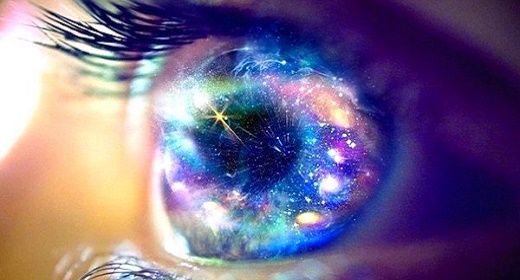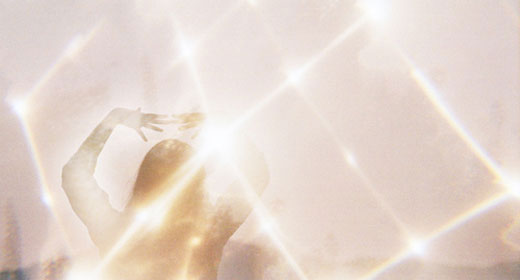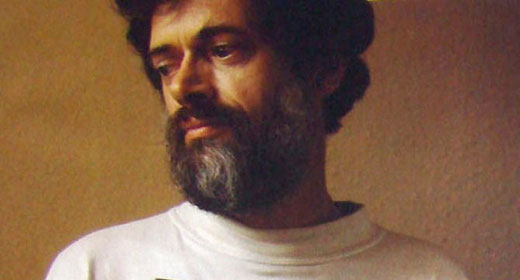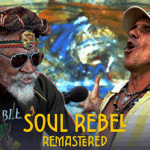David Welch: First of all, I’m a big fan of yours. If you’ve been on the Awaken site, I’ve tried to gather together the teachers…
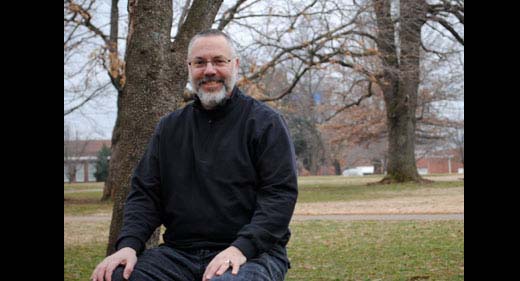
Rabbi Rami Shapiro: Yeah, I saw that. Thank you for including me.
DAVID: The teachers that can help awaken not only myself but all of humanity. I wanted to have a resource for those in the process of awakening.
RABBI RAMI: Yeah, yeah.
DAVID: To offer positive, uplifting, useful information.
RABBI RAMI: Yeah.
DAVID: I was very impressed with how you described God. So, if you wouldn’t mind, my first question is, if you were going to attempt to describe God, what would you say?
RABBI RAMI: Well, I mean for me, God is reality. So, everything is God. There isn’t anything that isn’t. So, you and I, and the recorder, and the table it’s sitting on, and the chai that we’re drinking…its all a manifestation of the same, you know…reality, and that’s what I call God. So, it’s not esoteric, its not mystical, it’s just the only thing that exists. In Hebrew, we have a saying in the Bible: I don’t know…Deuteronomy 4:34/35 it says, ein od milvado: “there’s nothing else but that…but the divine.” Hindus…Tat Tvama Asi: “you are that.” I mean, it’s all the same. I think when they talk on the mystical level, they’re all saying the same thing and what they’re saying is, whether you call it God or something else, everything is a manifestation of a single reality.
DAVID: So, with that in mind then, what does it mean to awaken? Is there a process?
RABBI RAMI: Yeah, good question. I don’t have a good answer. Let’s talk about process first. If there is a process, then time is involved. And, you know, I go from being, I guess…from not awake, to less not awake, to a little awake, to a little more awake. Or, is it just, Bam!…you’re either awake or you’re not? And, I tend to think it’s the second. It’s more sudden, as opposed to, you know…in Zen, they have the sudden school of awakening and the gradual school of awakening and I’m more inclined toward the sudden school. It’s just…you’re living in delusion where you think that you and I are really not simply diverse manifestations of a singular reality but actually separate realities. You just awaken from that illusion to the realization of the non-duality and that just happens instantaneously.
So, the question is, if there’s no process, are there practices for doing that? And, I would say, no. I would say, practices are for getting you to a place where it can happen, and then it happens by grace. I don’t think you can practice your way to awakening. I think you can, you know…work with your breath and work with your mindfulness practice. And, there are so many different meditation practices. You can work with practices that continually challenge the assumption that I am apart from this non-dual reality. But, I think the actual awakening to being a part of it is not under my control. So, I’m leery of someone saying, “yeah do this meditation for 20 minutes a day, twice a day, or 20 hours a day and you’re going to wake up.” No, I don’t think so.
DAVID: Having said that, do you have any daily practices or rituals? Do you pray? Are there things that you do every day that you feel helps you to be closer to God or helps you….
RABBI RAMI: Yes, but not for that reason. So, I don’t do anything to get closer to God. There’s no way to get closer than to being it yourself, so…you’re already it.
DAVID: Right.
RABBI RAMI: So, I practice. I have a lot of things that I do every day. I have a list of mantras that I do every day with Amala beads. I do them in Hebrew. I do them in Sanskrit. I’ve gotten them from different gurus, different times in my life and I just kept them. I like the repetition of sacred phrases, so I do that regularly, you know, on a daily basis. I have a…I guess it’s a kind of mantra practice, though I guess there’s a different word for it. Maybe because it’s Japa. But, the repetition of a divine name or phrase constantly, as opposed to my more formal, like…this morning, 4 o’clock in the morning, I’m up and I’m doing the repetition of the formal mantra, but, throughout the day, I’ll I have a less formal thing that I repeat over and over again. And then I do silent sitting. Just observing the mind. Nothing more than that. It’s just watching the madness of my mind.
After all these years of practice and going, yeah, nothing really changes. And just watching that, and just resting as much as one can. Having now just turned the eternal subject into an object but resting in that observer consciousness. But, as soon as I say that, I’ve made an object out of what can only be, you know, the singular eternal subject. So, I’m just BS’ing, you know what I mean? I mean, you can’t…anything I say about it isn’t really it, so…
DAVID: Right.
RABBI RAMI: I have a lot of practices that I do, but I do them because I love doing them. I only do it for the joy of doing it.
DAVID: Not to get somewhere.
RABBI RAMI: Yeah, not to get somewhere. And I’ve given up on that idea. And that’s either because there’s nowhere to get to, which is what I tell myself…but that may simply be what I tell myself because I’m too lazy to get where they’re supposed to take me. So I could be wrong. But I do it now just because I love doing it.
DAVID: How would you describe the present moment? And, what is presence?
RABBI RAMI: Yeah, well, I can’t describe the present moment. As soon as, you know…as soon as I can objectify the present moment, it’s already…the moment has just passed. So, I think that there’s an experience of the present, which is just beyond my normal waking-state consciousness to grasp. And I can’t describe it because I’m not there. There’s just that arising or that happening of, you know, me…you…table…oxygen…you know, of the universe happening in that sphere of awareness that I may have. But, I’m not there as an egoic person to say, “Oh yeah! This is the present moment!” I mean…you know…Eckhart Tolle…I admire his work, but, I’ve never been in the now, you know?
DAVID: Right.
RABBI RAMI: Because in that now, if I’m there, I’m fairly certain that if I’m there, the now isn’t. Then I’m always one step behind.
DAVID: If there’s an observer and observed then you’re already in the duality of now.
RABBI RAMI: That’s what I think. Thank you for saying that, I should interview you, you’re much more articulate. Yeah, but that’s what I’m saying. Yeah, that division is a functional necessity so I can get through my day and do whatever I was doing. But, it’s not the absolute reality. And I think you do experience…well, the language betrays us. But, there’s a happening there, but I can’t experience it as “other,” so, I can’t describe it. I’m always leery about people who say, “I had an amazing mystical experience” or “spiritual experience.”
DAVID: In the past.
RABBI RAMI: Well, it’s in the past, that’s fine. But I mean…when I was in India last week, we had this big discussion and, you know, people were saying, well if you’ve…everyone can describe a spiritual experience any way they want and no one can judge it. And, you know, being crotchety and old, I basically said “no, I can judge it.” If you’re having it, it’s not it! You know, if you’re there saying to yourself in meditation, “Oh this is fantastic! I’m having this great experience!” Then, yeah, you are having a great experience, but I don’t imagine that’s awakening or enlightenment or…because if you’re there, it’s not that. That’s my assumption.
DAVID: To the Toltec, there is the known, the unknown and the unknowable. So, my ego immediately went, “oh yeah, the unknowable…that’s where all the real truth is! I’ve got to get to the unknowable!”…right? So, as I got deeper and deeper into presence, what I discovered was that the unknowable was when there is no knower to know.
RABBI RAMI: Yeah, we have this great word in Hebrew for that experience. Reb Nachman of Breslov in the 18…late 17…early 1800’s called what we’re talking about, Rashimu. Rashimu means, “like fragrance.” I think the analogy is, if you buy…you know, expensive perfume oil and you take the stopper out of the bottle, eventually the oil evaporates and there’s nothing in the bottle, but the fragrance remains and the fragrance is the Rashimu. And, that’s what I think we pick up. So, that’s happening without my egoic self—”I.” But, afterwards, when I come back, I have some remnant, something has changed. Iit shifted. I know something I didn’t know, or I felt something and the vibration of that, the residue of that, the Rashimu, the fragrance of that, is still with me, even though I’m there as an observer again.
And, so I don’t think it’s…I think if someone has an experience like, you know, of presence or awakening or whatever it is, while they’re not there at the moment…when they come back—if it was an authentic experience—there is a Rashimu, a fragrance. And the fragrance is always one of justice and compassion. You know your practice…I hate to say, “your practice is working,” I mean…oh, the language is horrible! But, you know something positive is going on, if you are continually in the egoic self…become more open, more just, more loving, kinder, more compassionate. Then you know, “ok, this is worth doing, even if I don’t know that unknowable.”
Read Part II Here: Awaken Interviews Rabbi Rami Shapiro Pt 2 – The Divine Mother Returns
Read Part III Here: Awaken Interviews Rabbi Rami Shapiro Pt 3- 13.8 Billion Years Of Cosmic Creativity

